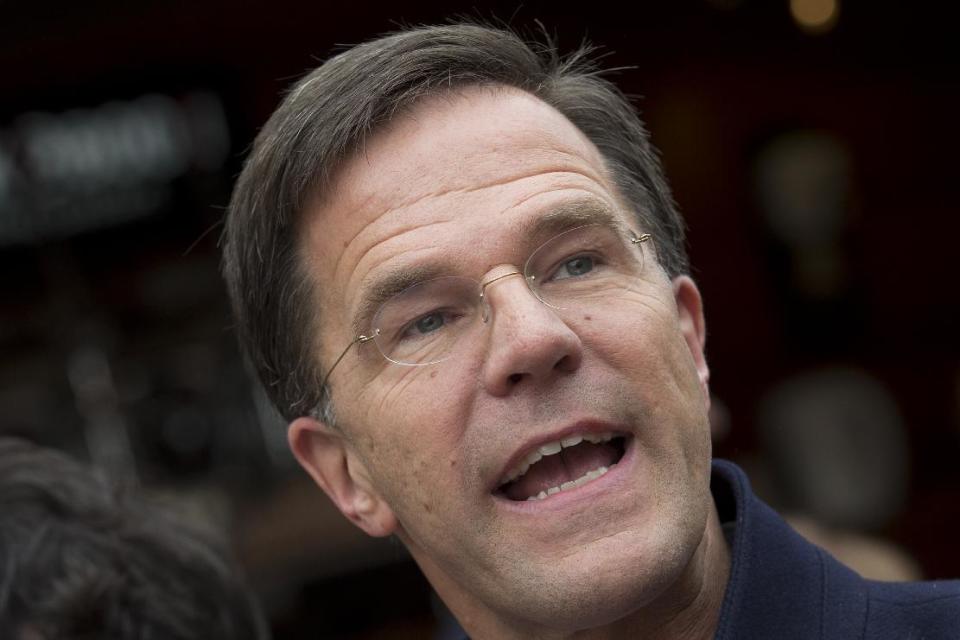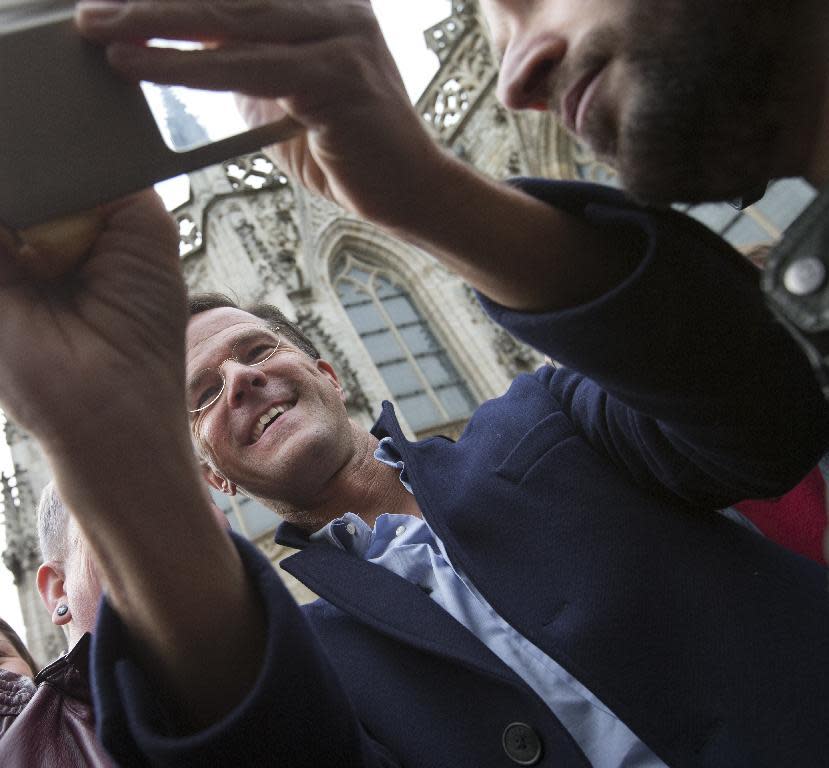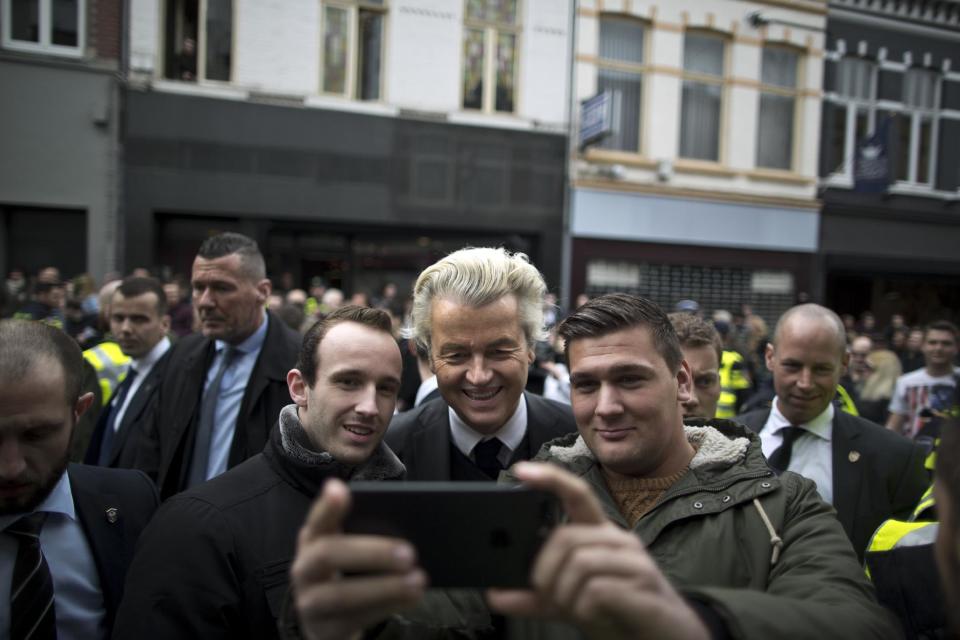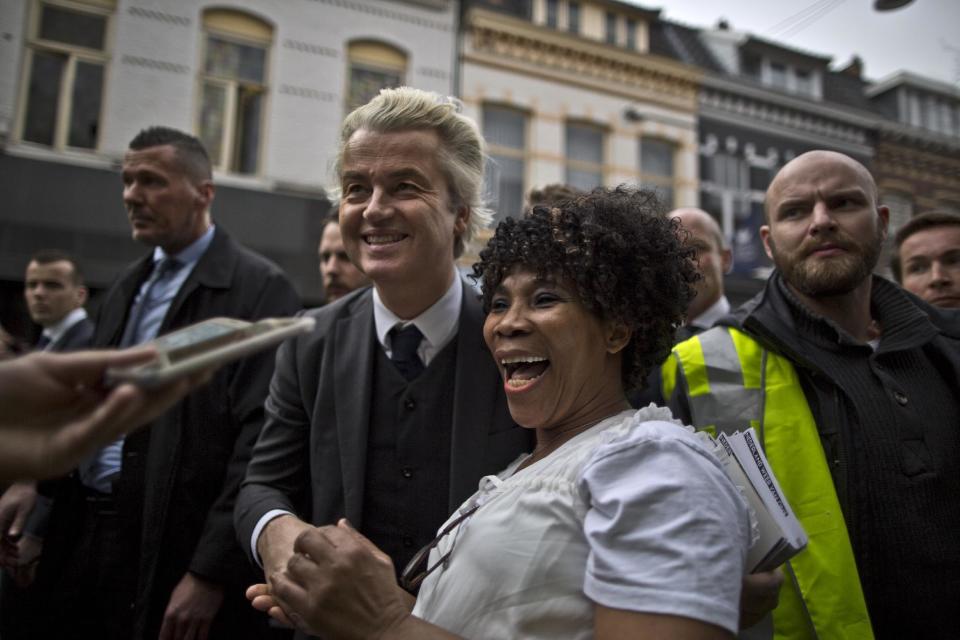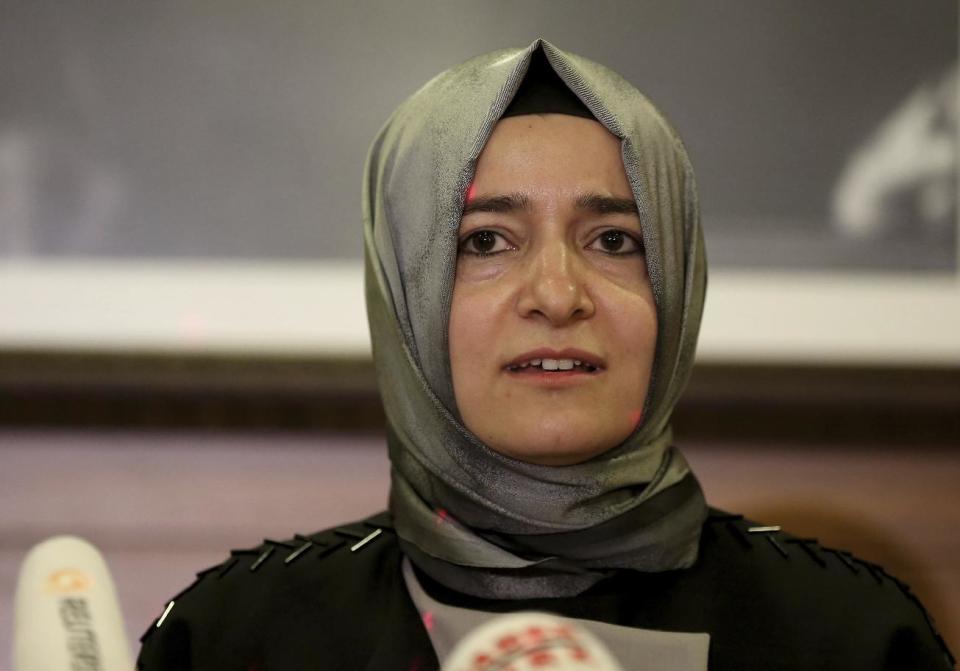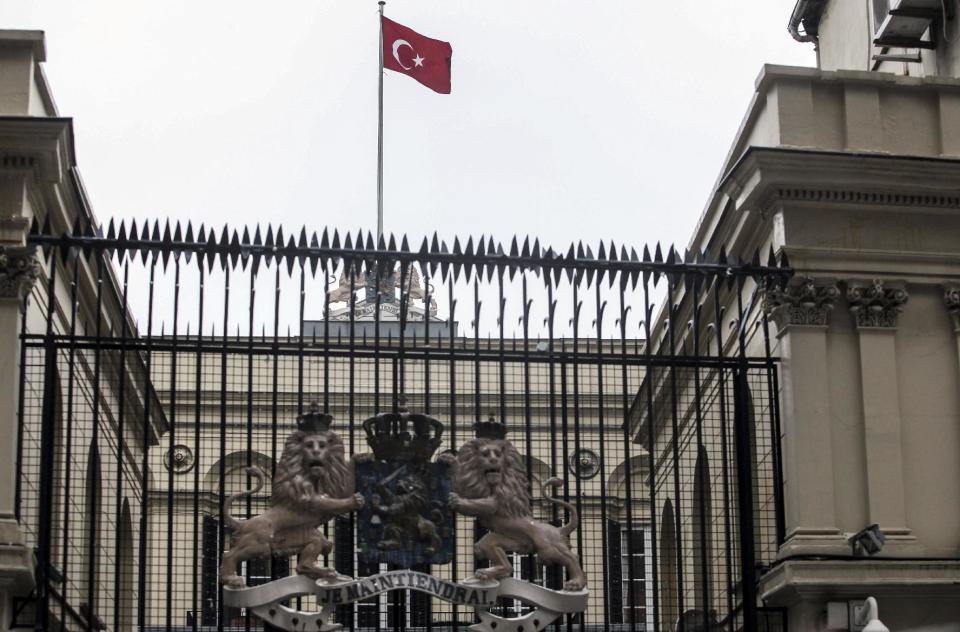Turkey dispute timing may benefit Dutch premier in election
THE HAGUE, Netherlands (AP) — Just days away from an election in which he hopes to secure a third term, Dutch Prime Minister Mark Rutte didn't want to be seen as backing down to Turkish threats.
Rutte enraged Ankara by refusing to let Turkey's foreign minister land in the Netherlands on Saturday and denying the country's family and social policies minister access to the Turkish Consulate in downtown Rotterdam.
However, the prime minister may have bolstered his image as a tough leader amid an electoral battle with far-right populist Geert Wilders.
Political scientist Andre Krouwel, of Amsterdam's Free University, said that in a campaign dominated by nationalism and national identity issues, Rutte's right-wing VVD party and not the Party for Freedom of anti-Islam firebrand Wilders would likely profit most from the diplomatic showdown with Turkish President Recep Tayyip Erdogan.
"Rutte is a key player in this because he is prime minister," Krouwel said in a telephone interview. So he and the VVD can say: "'We are the ones who really protect your interests, we are the ones who go down into the trenches to defend the Netherlands.'"
The image of Turkish flag-waving protesters clashing with riot police in downtown Rotterdam early Sunday might appear to play into the hands of Wilders and his anti-immigrant platform. But Krouwel said that Wilders' views on immigration and integration have been known for years by Dutch voters and so he may not profit.
Other parties, like Rutte's VVD and the increasingly right-wing Christian Democrats, seeking to eat into Wilders' support base by moving further to the right on such issues are more likely to reap electoral rewards in the knife-edge Dutch election on Wednesday.
"The election is still wide open," Krouwel said. "What the right-wing parties are now doing is jumping on this theme from Turkey to — more than already was the case — emphasize themes of immigration, integration, the migrant problem and the concerns about what identity we still share."
Ben Bot, a former foreign minister for the Christian Democrats, said Saturday that the Dutch government's decision to refuse landing permission to a plane carrying Turkish Foreign Minister Mevlut Cavusoglu was likely influenced by "electoral considerations."
Bot's comment to Dutch broadcaster RTL came as the Christian Democrats are making gains, with polls suggesting they could win around 20 of the lower house's 150 seats. Rutte's VVD is leading polls with up to 27 seats, while Wilders' PVV is projected to win as many as 23. Many voters, however, are still undecided.
Meanwhile, leftist parties aiming to campaign on economic issues like job creation, the economy and health care are likely to suffer from the focus on Turkey, Krouwel said.
"The dominant issues in this campaign are immigration, integration, security, terrorism, identity," he said. "What you see is that this situation makes these themes so dominant that leftist themes ... are totally absent."
Those looking to see what Rutte and Wilders will make of the Turkey dispute don't have long to wait. The two are due to take part in a televised head-to-head debate Monday.
